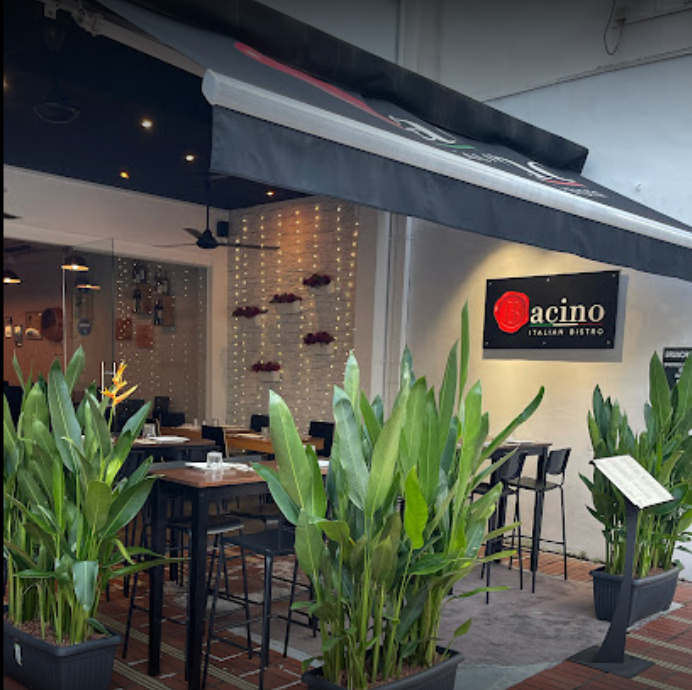Introduction
Ever thought about the environmental impact of your kitchen? Sustainability in the kitchen is all about making choices that are good for you and the planet. It means being mindful of where your ingredients come from and how they’re produced. By practicing sustainable cooking, you can help reduce waste, conserve resources, and support ethical practices.
Chipotle is a shining example of a company committed to sustainability. They go the extra mile to ensure their operations are eco-friendly and socially responsible. From sourcing ingredients that respect people, animals, and land to incorporating sustainable practices into their daily operations, Chipotle walks the talk.
Their dedication doesn’t stop at just serving delicious food. Chipotle’s commitment extends to supporting the professional growth and development of their team members, fostering a culture of inclusion, and pushing forward initiatives that protect the environment and future farming practices.
Ready to dive into how Chipotle sources and serves responsibly? Let’s explore their holistic approach to sustainability and see what we can learn for our own kitchens.
1. Chipotle’s Approach to Sustainability
Chipotle doesn’t just serve delicious burritos and tacos; they do so responsibly. They are committed to sustainability in every aspect of their business, from sourcing ingredients to reducing their environmental impact.
Holistic Approach Towards Sustainability
Chipotle takes a holistic approach to sustainability by focusing on:
- Responsible Sourcing: They make sure that the ingredients they use are grown, raised, and harvested in a way that respects people, animals, and the land. This means giving priority to fair labor practices, ethical treatment of animals, and regenerative farming.
- Environmental Efforts: Chipotle has initiatives in place to lower greenhouse gas emissions, conserve water, and reduce waste. They are implementing these strategies throughout their supply chain and restaurants, setting an example for the entire food industry.
One impressive thing about how Chipotle approaches sustainability is how open they are about it. They proudly share their sustainability goals and accomplishments with customers, showing that they’re not just saying things but actually taking action.
Their dedication to sustainability can be compared to perfecting a traditional recipe like Saltimbocca alla Romana, where each ingredient and step is chosen carefully to create a flawless dish. Just like how Chipotle carefully selects sustainable ingredients and implements eco-friendly practices, preparing this classic Italian dish requires attention to detail every step of the way.
2. Sourcing Ingredients with Respect
2.1 Ensuring Fair Treatment: People
Chipotle not only wants their food to taste good but also wants it to feel good. They are committed to ensuring fair treatment for everyone involved in their supply chain, making every bite of your burrito satisfying in more ways than one.
Supporting Farmers and Suppliers
Chipotle understands that sustainable sourcing starts with the people who grow and harvest their ingredients. That’s why they take several steps to support farmers and suppliers:
- Fair Wages: Chipotle makes sure that farmers and suppliers are paid fairly for their products, helping to uplift communities and create economic stability.
- Safe Working Conditions: By working with organizations like Fair Trade USA, Chipotle ensures that farmworkers have safe and healthy environments to work in.
- Community Development: Chipotle believes in investing in local communities. They do this by funding educational programs and healthcare initiatives, improving the lives of those who provide us with food.
Partnerships That Matter
Chipotle knows that they can’t do it alone. That’s why they partner with various organizations that share their commitment to ethical labor practices:
- Fair Trade USA: Through this partnership, Chipotle guarantees that the products they source meet high social, environmental, and economic standards.
- Rainforest Alliance: By collaborating on sustainable farming certifications, Chipotle helps ensure the well-being of both workers and the environment.
“We believe that every ingredient has a story, and we want those stories to be positive ones filled with respect for people.” – Chipotle executive
This approach shows how important it is to treat everyone in the supply chain with respect and fairness. When farmers are happy, their crops thrive, leading to happier customers!
Now let’s dive into Chipotle’s unwavering commitment to animal welfare.
2.2 Ethical Animal Welfare Standards
When it comes to sourcing ingredients with respect, Chipotle doesn’t just talk the talk; they walk the walk too. A major part of their sustainability strategy revolves around partnering with ethical suppliers and farmers who prioritize animal welfare. So, what exactly does this commitment look like?
Humanely Raised Meat
First off, Chipotle only uses humanely raised meat. This means that the animals are not just treated as commodities but are given space to roam, proper shelter, and a diet free of unnecessary chemicals. Imagine cows grazing in open pastures and chickens pecking around freely—that’s the kind of life these animals deserve.
No Antibiotics or Hormones
But wait, there’s more! Chipotle stands firm on avoiding antibiotics and hormones in their animal products. It’s like giving these animals a VIP treatment in the world of farming:
- No Antibiotics: Animals are not pumped with antibiotics to promote growth or prevent disease. Instead, they live in conditions that naturally keep them healthy.
- Hormone-Free: Chipotle says a big “nope” to synthetic hormones. They believe in letting nature take its course without artificial interference.
According to Chipotle, treating animals ethically is not just good for the animals; it’s better for us humans too. Healthier animals mean healthier food for everyone involved.
Partnerships with Ethical Farms and Suppliers
In terms of partnerships, Chipotle is quite selective about who they work with. They partner with farms and suppliers who share their vision of ethical standards:
“We believe that the best food is born from respect—respect for the people who grow it, respect for the animals involved, and respect for the land.”
This philosophy extends beyond just meat production. It impacts every aspect of their supply chain, ensuring that fairness and sustainability go hand-in-hand.
By setting these high standards, Chipotle is making a statement: sourcing ingredients responsibly isn’t an option; it’s a necessity. This approach not only ensures fair treatment for farmers but also promotes a healthier ecosystem overall.
Feel free to take your next burrito bite knowing it’s made with ingredients sourced responsibly right down to the last chicken cluck or cow moo!
2.3 Promoting Regenerative Agriculture: Land
When it comes to sourcing ingredients, Chipotle goes beyond the surface by focusing on the land itself. Their commitment to regenerative agriculture is not just a trend; it’s a dedication to ensuring the health and vitality of our planet for future generations.
Why Regenerative Agriculture?
- Soil Health: Healthy soil is the foundation of nutritious food. Regenerative farming methods emphasize minimal soil disturbance, cover cropping, and crop rotation. These practices enhance soil structure, increase organic matter, and improve water retention.
- Biodiversity Conservation: By promoting diverse ecosystems, regenerative agriculture supports a wide range of plant and animal life. This biodiversity ensures resilience against pests and diseases, reducing the need for chemical interventions.
Chipotle’s Initiatives
Chipotle partners with ethical suppliers and farmers who share their vision of sustainable land management. Here’s how they do it:
- Cover Cropping: This practice involves planting specific crops that cover the soil rather than leaving it bare between planting seasons. Cover crops prevent erosion, suppress weeds, and improve soil fertility.
- No-Till Farming: Minimizing soil disturbance helps preserve its structure and health. No-till farming reduces erosion and runoff while maintaining the rich microbial life essential for nutrient cycling.
- Integrated Pest Management (IPM): Instead of relying on chemical pesticides, IPM uses natural predators and diversified planting strategies to control pests. This method protects both the crops and the surrounding ecosystem.
The Farmer Connection
Supporting farmers is crucial to Chipotle’s strategy. They ensure fair treatment by:
- Offering fair wages and supporting community development projects.
- Providing educational resources and training on regenerative practices.
- Creating long-term partnerships that help farmers transition to more sustainable methods.
This approach not only benefits the environment but also strengthens local communities. Farmers gain access to markets that value their hard work and dedication to sustainability.
Fun Fact: The term “regenerative agriculture” might sound new, but it’s actually rooted in ancient farming techniques practiced by indigenous cultures around the world!
By prioritizing regenerative agriculture, Chipotle is taking significant steps towards fostering a sustainable future—one field at a time.
3. Nurturing a Sustainable Future
3.1 Reducing Greenhouse Gas Emissions
When it comes to environmental sustainability efforts, Chipotle is all about taking action. We’re not just talking about it, we’re doing something about it. One area where Chipotle is making a big impact is in reducing greenhouse gas emissions across their entire supply chain.
Goals and Strategies for Mitigating Greenhouse Gas Emissions
You might be wondering, “What can a burrito restaurant really do?” Well, get ready because Chipotle has a multi-faceted plan:
1. Sustainable Sourcing
The first step in reducing emissions starts with where we get our ingredients. By choosing to work with farmers who use sustainable practices, we can lower emissions right from the start. For example, sourcing meats from farms that practice regenerative agriculture helps trap carbon dioxide in the soil.
2. Energy Efficiency
Chipotle is committed to using less energy. We’re doing things like:
- Using energy-efficient appliances in our restaurants
- Designing eco-friendly buildings
- Installing LED lights to save energy
3. Transportation
It’s not just about what we serve, but also how it gets to our restaurants. Chipotle partners with suppliers who use fuel-efficient transportation methods such as hybrid trucks and optimized delivery routes.
4. Menu Choices
Believe it or not, what you choose to eat can make a difference! That’s why we offer plant-based options like Sofritas (tofu). By choosing these options more often, you can help reduce your carbon footprint.
Fun Fact: Did you know that by switching one meat-based meal a week to a plant-based option, you could save the equivalent of driving 1,160 miles less per year? That’s like driving from New York City to Miami!
5. Waste Reduction
Less waste means fewer greenhouse gases. Chipotle is taking steps to reduce waste by:
- Composting food scraps
- Recycling used cooking oil into biodiesel
These actions have a big impact on reducing methane emissions from landfills.
6. Renewable Energy
Chipotle is also investing in renewable energy sources for our operations. Whether it’s installing solar panels on new locations or purchasing renewable energy credits, we’re committed to powering our restaurants with clean energy.
Measuring Success
To make sure we’re actually making a difference, Chipotle regularly measures its carbon footprint using third-party verification systems. This data helps us see where we can improve and track our progress towards our goals.
- Every year, Chipotle publishes a sustainability report that highlights what we’ve achieved and what we’re working towards. This transparency holds us accountable and allows our customers to see the positive impact their choices are making.
Our Goals
Chipotle has set some ambitious goals:
- Reduce absolute Scope 1 and 2 greenhouse gas emissions by at least 50% by 2030.
- Achieve net-zero emissions across its entire supply chain by 2050.
These goals are not just empty promises; they’re backed by specific plans and ongoing evaluation to make sure we stay on track.
By incorporating these strategies into everything we do, Chipotle is not only working towards a sustainable future but also leading the way for other businesses to follow suit. Because protecting the planet should be a priority for everyone!
3.2 Responsible Water Stewardship
Water is essential for life on Earth, and we must use it wisely. Chipotle understands this and has made significant efforts to be responsible with water as part of their commitment to the environment. Here’s a closer look at what they’re doing:
Sustainable Farming Methods
- Using Advanced Irrigation Systems: Chipotle works with farmers who use efficient irrigation methods like drip irrigation. This approach delivers water directly to plant roots, reducing waste and improving crop growth.
- Choosing Drought-Resistant Crops: The brand encourages farmers to grow crop varieties that can withstand dry conditions. These plants require less water but still produce good harvests, promoting both water conservation and food security.
- Implementing Water Recycling: Some of Chipotle’s farming partners have set up systems to treat and reuse wastewater for irrigation purposes. This innovation helps decrease the need for fresh water in agriculture.
Water Conservation in Restaurants
- Installing Water-Saving Fixtures: Chipotle has installed low-flow faucets and toilets in their restaurants to minimize water usage. These fixtures are designed to reduce the amount of water used per flush or hand wash, making every drop count.
- Training Employees: Staff members receive training on how to conserve water while preparing food and cleaning. This includes practices such as using minimal water when washing vegetables and running dishwashers only when they’re full.
- Checking for Leaks: Regular inspections are carried out to identify any leaks or inefficiencies in the restaurant’s plumbing system. Addressing these issues promptly can save thousands of gallons of water each year.
Supporting the Community
Chipotle goes beyond their own operations and actively contributes to water conservation efforts in communities:
- Investing in Local Watershed Projects: By providing funding for projects that protect local watersheds, Chipotle plays a role in preserving the health of nearby rivers and streams, which are vital for sustainable farming.
- Raising Awareness: The company runs educational campaigns to educate customers and community members about the importance of conserving water. These initiatives aim to inspire positive actions towards water stewardship.
Water stewardship is not just a trendy term for Chipotle; it’s an integral part of their dedication to environmental sustainability. Through promoting efficient farming methods, implementing water-saving practices in their restaurants, and engaging in community partnerships, they strive to safeguard this precious resource for future generations.
Every drop saved today brings us closer to a more sustainable future—one delicious meal at a time.
3.3 Waste Minimization and Recycling Programs
Chipotle is committed to making your burrito experience sustainable. They’re not only focused on responsible sourcing, but also taking action to reduce waste. Here’s what they’re doing:
Tackling Food Waste
- Food Donation Programs: Chipotle partners with local food banks to donate surplus food. This ensures that perfectly good meals don’t end up in the landfill but instead feed those in need.
- Inventory Management: By optimizing their inventory management systems, they make sure that ingredients are used efficiently, reducing the amount of food that gets wasted in the first place.
Composting Initiatives
Composting is another important part of Chipotle’s waste reduction plan. By turning organic waste into compost, they help decrease methane emissions from landfills—a major contributor to greenhouse gas emissions.
- Restaurant-Level Composting: Many Chipotle locations have started composting kitchen scraps and customer leftovers.
Recycling Programs
To further support environmental sustainability efforts, Chipotle has implemented recycling programs to prevent materials like cardboard, plastic, and glass from ending up in landfills.
- Recycling Stations: Many restaurants have convenient recycling stations for customers to sort their waste.
- Recycled Packaging Materials: The company uses packaging made from recycled materials whenever possible, closing the loop on waste and promoting a circular economy.
Digital Receipts
In an effort to reduce paper waste, Chipotle offers digital receipts. This not only saves trees, but also makes it easier for customers to track their purchases without having physical receipts piling up.
“Waste not, want not” isn’t just a saying at Chipotle—it’s a way of life!
By implementing these initiatives, Chipotle supports the long-term sustainability of the food industry through various environmental actions. They demonstrate that being eco-friendly can be integrated with serving delicious food.
Conclusion
Chipotle’s commitment to sustainability in the kitchen is truly something to celebrate. Their practices serve as a shining example of how sourcing and serving responsibly can make a significant impact on the planet. By prioritizing fair labor, ethical treatment of animals, and regenerative farming, Chipotle sets a high standard for what it means to be a responsible and eco-friendly business.
Why not channel your inner Chipotle at home?
- Source Responsibly: Look for local farmers’ markets or stores that prioritize fair trade and organic products. Your choices can support sustainable practices and encourage ethical treatment of workers.
- Eco-Friendly Cooking: Simple changes like using energy-efficient appliances, reducing food waste by planning meals ahead, and composting scraps can make a big difference.
- Get Creative: Try your hand at growing your own herbs or vegetables. It’s not just sustainable; it’s fun and rewarding!
By adopting these small yet impactful habits, you can contribute to sustainability in the kitchen. Every little step counts towards creating a healthier planet for future generations.
“The greatest threat to our planet is the belief that someone else will save it.” – Robert Swan
So go ahead, make those sustainable choices and inspire others to do the same. The earth (and your taste buds) will thank you! 🌿














































































